HSE Rector: Universities Should Create New Educational and Research Products and Expand Human Capital
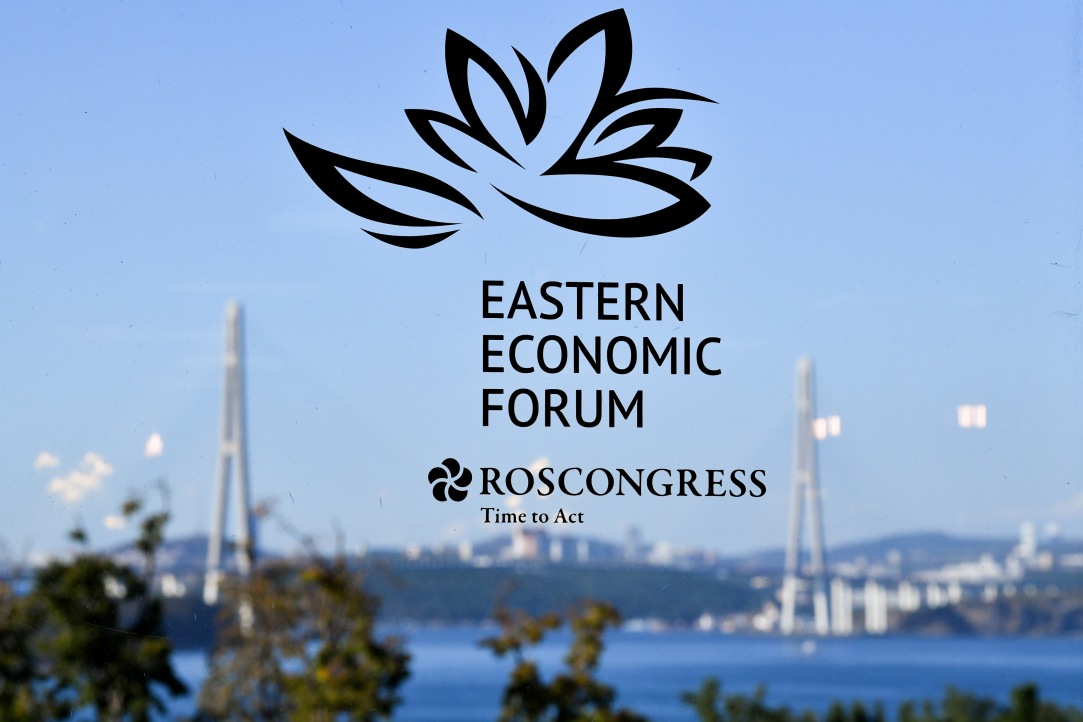
How should the universities of the Asia-Pacific region develop in the digital era, what challenges does the Russian labour market face, and what are the prospects of the Far East and Arctic region? These were some of the topics discussed during the first day of the Eastern Economic Forum, which featured the participation of HSE Rector Nikita Anisimov and other HSE University experts.
New challenges and opportunities for the education system
Russia’s Eastern Economic Forum (EEF) opened in Vladivostok on September 2. Attendees included HSE University experts and HSE Rector Nikita Anisimov. On the first day of the EEF, Mr. Anisimov gave a speech at the 10th APEC Conference on Cooperation in Higher Education.
Russian Minister of Science and Higher Education Valery Falkov opened the conference by noting that while the COVID-19 pandemic has created new challenges, the world’s higher education system has successfully addressed them to become even stronger. The pandemic has shown that a full transition to online education is impossible, as it would lead to a sharp deterioration in the quality of education. Instead, universities should strive for an efficient mix of online and offline teaching. New teaching formats have also demonstrated the need to develop new methodologies and ways of passing on knowledge in light of the realities of remote study. Digital ecosystems and digital support for education and research activities are now of the utmost importance. This also necessitates new data protection requirements.
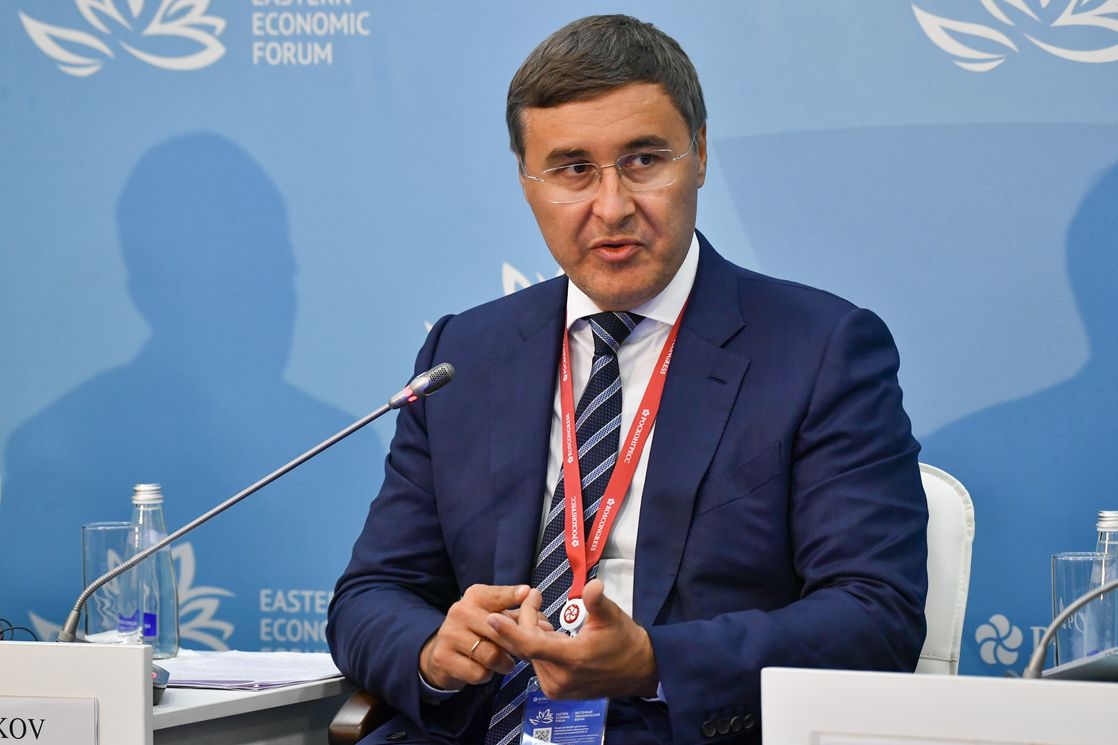
The pandemic has not disrupted long-term projects. ‘We have not forgotten to make long-term plans, and we have launched a number of long-term projects,’ said the minister. He noted that 191 applications had been submitted to the Priority 2030 project.
According to Mr. Falkov, it is also important to promote student engagement in entrepreneurship, including in technology, and to encourage students to create startups and implement new technologies. It is important to allow students to make mistakes, which are an essential part of achieving success, he said.
Evgeny Primakov, Head of Rossotrudnichestvo, said that one of the agency’s key objectives is to attract foreign students to study in Russia. This is more beneficial than attracting tourists, as students stay in Russia longer, rent flats, buy food, and often visit cultural events and shows. Those who study under scholarships serve as an example to their fellow citizens, who may come to Russia and pay for their studies.
Evgeny Primakov believes that the Russian education system is one of the best in the world in terms of price-quality ratio. Most often, foreign students choose to study degrees in art, STEM, biotechnologies, and IT. He noted that the successful development of a vaccine by Russian scientists makes medical universities more appealing.
Russia should encourage students from poorer countries to come and study by covering their travel and medical insurance expenses, Mr. Primakov says. Many graduates from Russian universities become ‘people’s diplomats’ who know the country well and promote a positive image of Russia abroad.
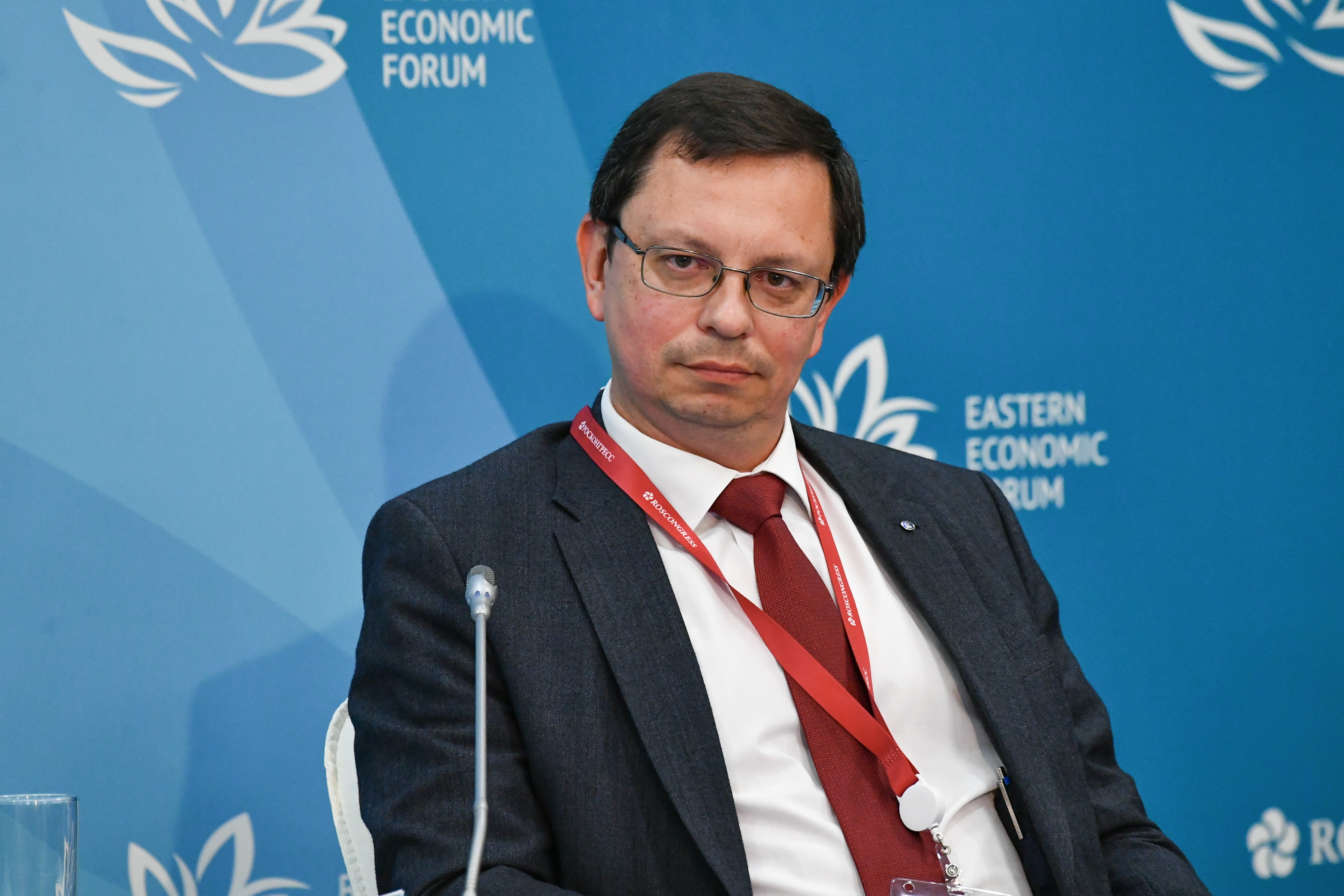
This was the sixth EEF for HSE Rector Nikita Anisimov, who headed the Far Eastern Federal University (FEFU) from 2016 until his appointment as HSE Rector. ‘The Far East is in my heart,’ Mr. Anisimov said, pointing out that education is one of the top priorities on the APEC regional cooperation agenda. There has been clear progress in higher education: a decade ago, only 15 universities from APEC countries (excluding the USA) were listed in the top 100 of the Shanghai Ranking (ARWU); in 2021, this number rose to 22. The gross R&D expenditures of APEC nations (excluding the USA) currently account for over 40% of global research and development spending.
It is important to identify joint efforts capable of maintaining positive trends in the development of higher education in the region despite the pandemic. The HSE Rector believes that the key priorities of the government and society are people and environmental, economic, and social sustainability.
We should focus on keeping people at the centre of our research and educational activities
‘Soft skills’ and basic economic and legal knowledge will become vital elements of any education, in addition to being requirements of the labour market in the new digital environment. Moreover, there will be a global labour market for highly qualified professionals. Students need online mobility programmes in the new normal, which will require the discussion and development a new legal framework in order to develop blended education programmes.
‘One important objective is the establishment of open databases and transparent science. Quick and easy access to well-secured information reduces the time and effort required to achieve the desired results. It is vital to develop the right format of cooperation,’ said Nikita Anisimov.
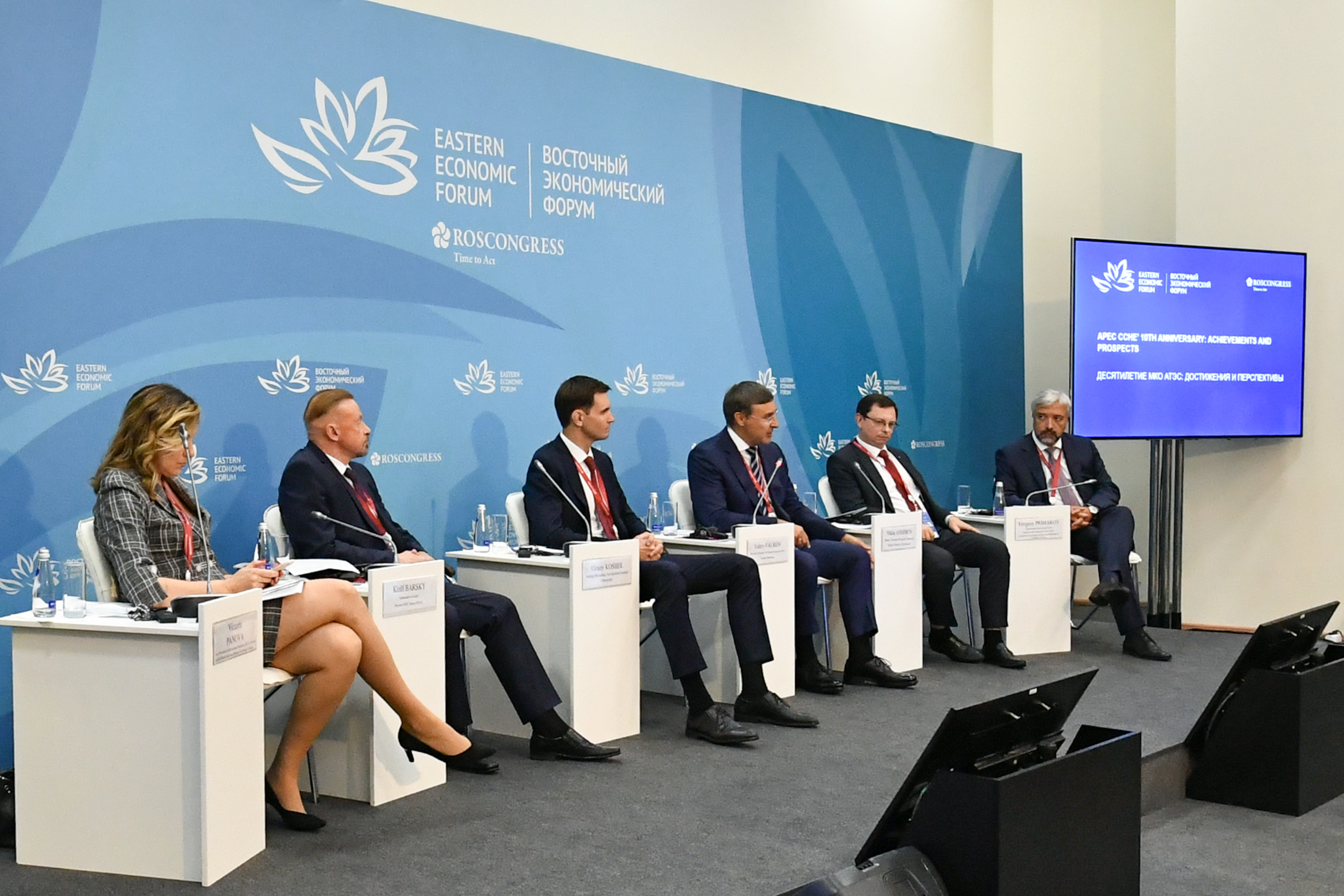
The HSE Rector also considers it important to overcome digital inequality. While 80–90% of the population of Australia, the USA, South Korea, Japan, and Russia have access to the internet, this figure does not exceed 50–60% in the majority of APEC countries. The future of the region and its universities will depend not only on how efficiently we introduce new formats of education and conduct groundbreaking research, but also on how effectively all APEC member states, their students, and researchers are involved in these activities. This is not just an issue of technological accessibility and the affordability of the internet and hardware—social aspects can also cause difficulties in online education. For many students and teachers, there is still a psychological barrier around the shift to the new format of education, and younger and older generations adopt new technologies at different paces.
HSE University plans to focus on the implementation of an interdisciplinary research agenda to meet global challenges and national priorities. AI-assisted analysis and forecasting of environmental, economic, and social processes and quality analysis of databases will be required elements of the university’s research and educational projects. HSE University’s strategic projects include the modelling of sustainable growth and inclusive development, evidence-based urban planning, the development of human capital, and key digital technologies.
HSE University’s research collaborations with universities and research centres in Russia and abroad will play a key role
Nikita Anisimov believes that APEC universities should actively participate in these processes. They should create new educational and research products and, most importantly, expand human capital. While digital technologies will serve as a key tool in addressing these issues, universities should uphold standards, values, and traditions that remain unchanged irrespective of any new technologies: those of transparency, commitment to cooperation in disseminating knowledge, and social responsibility.
Russia survived the COVID crisis without cutting salaries
Another EEF session was devoted to the future of the Russian labour market. The session featured the participation of Professor Lilia Ovcharova, Vice Rector and Director of the Institute for Social Policy at HSE University. Professor Ovcharova believes that the labour market is set to face tremendous challenges. Fast-paced technological development requires the continuous improvement of knowledge and competencies. Those who invest in continuous education will reap the rewards. The HSE Vice Rector said that digital technologies and remote employment are creating an entirely new labour market, but ‘we are lagging behind our competitor countries by about 20 years’.
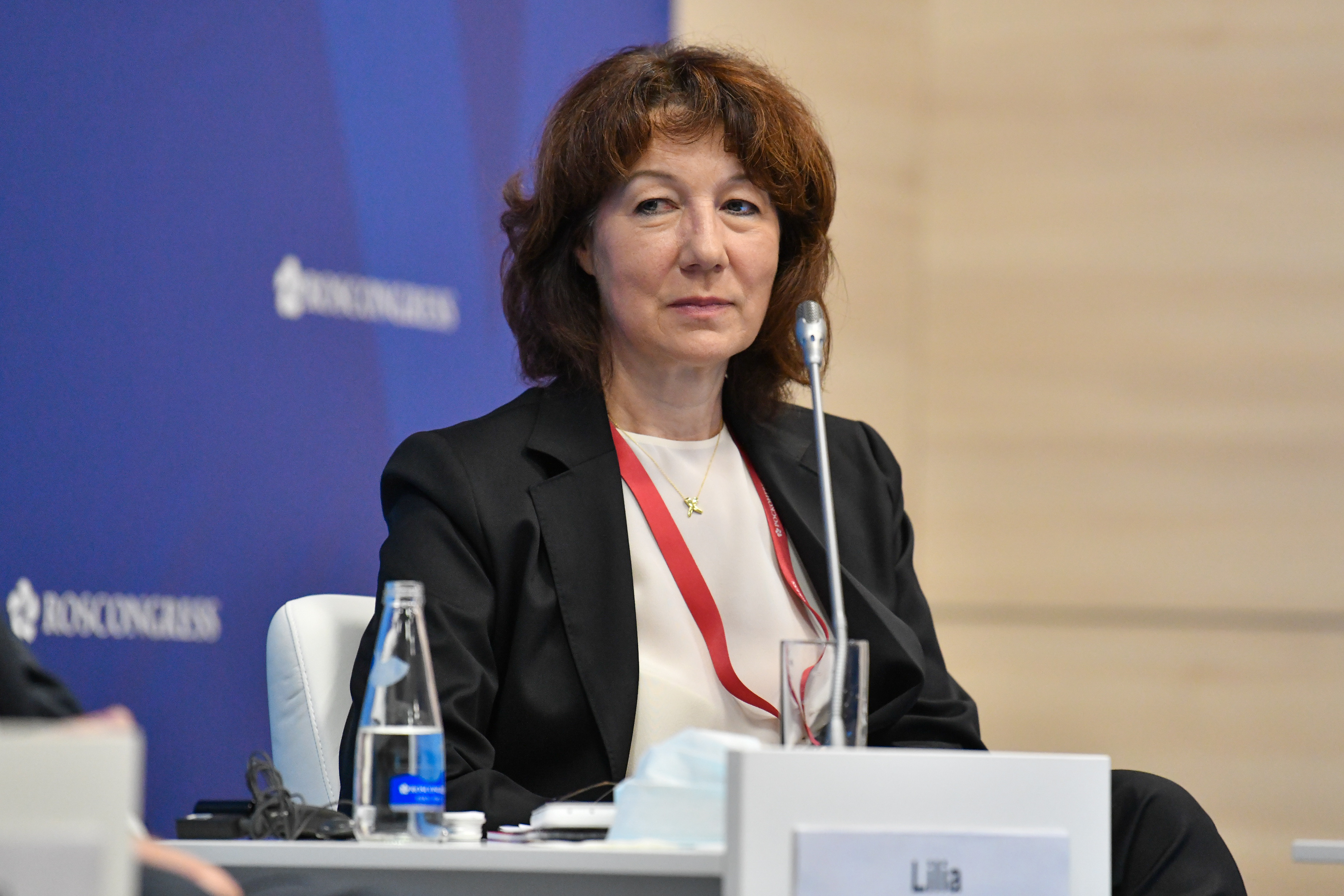
Professor Ovcharova noted that poorer-quality vacancies in the corporate segment have given way to those of higher quality. Infrastructure projects are being implemented to create innovations and invest in human capital. However, no effective programmes to support unemployed people have been introduced over the past two decades. Under the current circumstances, investment in retraining is increasingly important, but Russia is spending much less on this type of education than European countries.
‘Why are we spending so little? We used to have bonuses that allowed us to turn a blind eye to the situation; the working-age population used to be at its maximum, which is something we will never have again,’ she said. She added that the population of the 29–39 age group will have decreased by 9,000,000 people by 2030, which is a huge loss in one of the most productive segments.
Professor Ovcharova says that Russia has never tried to recruit migrants, as the country has been used to the fact that the majority of foreign workers were well-educated people with a good command of Russian. However, the situation has changed in recent years.
“I would like to finish on a more optimistic note. This is the first time in 20 years that we have survived an economic crisis without having to cut salaries. This gives me hope that the Russian labour market will stop responding to crises by reducing salaries and production output,’ she concluded.
Russian Minister of Labour Anton Kotyakov shared new Rosstat statistics showing that the unemployment rate has returned to pre-pandemic levels (4.5%) and the labour market had rebounded, with the number of employed people even rising slightly in the Russian Far East.
Long-term trends have affected the labour market. In particular, the minister pointed out that 30,000 people worked remotely before the pandemic, while during the pandemic this number rose to 5–6 million. About 3,000,000 people are working remotely at the moment. ‘Our employers and employees appreciate the benefits of remote working, and this trend will continue to grow,’ the minister said.
Changes in technology affect what is required of employees. IT is becoming increasingly important in all employment segments. New competencies should be taught at school and university
The overall level of education in Russia has risen alongside changes in employment structure. According to the Mr. Kotyakov, 2,000,000 new jobs will be created in the IT sector in the near future. This will require more digital competencies and will influence educational programmes. Moreover, demand for long-term advanced training programmes is likely to increase.
The minister believes that Russia can expect to see employment growth in the services and hospitality sector, while the demographic agenda, including longer life expectancies, will create stronger demand for experts in additional education, social services, and elderly care.
Participants of another EEF session discussed key external factors in the development of the Far East and Arctic region. The moderator of the session was Timofey Bordachev, Academic Supervisor of the Centre for Comprehensive European and International Studies (CCEIS) at HSE University. Among the speakers was Professor Andrey Bystritskiy, Dean of the Faculty of Communications, Media, and Design at HSE University.
See also:
‘The Issue of Student Housing Can Be Considered Resolved at HSE University’
HSE University experts took part in ‘Rental Housing—Development Opportunities’, a session at the Eastern Economic Forum in Vladivostok, Russia. They discussed how to create a transparent rental housing market and talked about the system of rental housing for HSE students.
EEF-2022: Asian Countries in the Arctic Dialogue
The Eastern Economic Forum took place place in Vladivostok. The participants of the ‘Eastern Dimension of International Cooperation in the Arctic’ session stated that joint research will help to find mutual understanding between the circumpolar states and the countries of the Asia-Pacific region. HSE News Service covers some sessions in which experts from HSE University took part.
Pivot to the East: A Comprehensive Study of the Cultural and Civilisational Centres of the Non-Western World is the Top Priority
China and the Chinese world, South Asia, Southeast Asia, the Arab countries, Iran, Turkey, Central Asia and Africa are gaining new significance in Russia’s foreign policy. However, we do not know enough about the Eastern countries. It is necessary to change the priorities in education, starting from grammar school. Prospects for the development of domestic Oriental studies in the context of the new stage in the development of the system of international relations were discussed at a round table at HSE University.
‘I Admire HSE Students’ Eagerness to Learn, to Discuss, to Broaden Their Perspectives’
Robert Romanowski was a ‘Digital Professor’ at HSE University in November 2021. In his interview for the HSE News Service, he talked about the specifics of online teaching, his course on Strategic Branding, and the skills that are essential for marketing professionals today.
Russia and Africa: Time to Expand Cooperation
There is major potential for economic and humanitarian cooperation between Russia and African countries. Particularly, Russian organisations and universities can help transfer competencies and knowledge in the fields of agriculture, energy, industrial production, environmental management, climate change, and public administration. Experts and representatives of African embassies in Russia discussed these issues at the round table ‘Russia-Africa Sharing Knowledge’ hosted by HSE University.
The Brain in Space: Investigating the Effects of Long Spaceflights on Space Travellers
As part of an international project conducted with the participation of Roscosmos and the European Space Agency, a team of researchers used differential tractography to analyse dMRI scans ofcosmonauts’ brains and found significant changes in brain connectivity, with some of the changes persisting after seven months back on Earth. The paper is published in Frontiers in Neural Circuits.
HSE University-Perm and the Training Centre of the Uzbek Ministry of Finance Sign Cooperation Agreement
HSE University in Perm has become the first academic partner of the Training Centre under the Ministry of Finance of the Republic of Uzbekistan. The parties have signed a cooperation agreement in education and research.
HSE University Strengthens Ties with Netherlands in Agricultural Research and Education
On November 9, 2021, HSE University signed a memorandum of understanding with Wageningen University & Research, a major university in the Netherlands and one of the leading agricultural research institutes in the world. Participants of the signing ceremony included HSE University Rector Nikita Anisimov, President of the Wageningen University & Research Executive Board Professor Louise Fresco, and Dutch Ambassador to Russia Gilles Beschoor Plug.
The Majority of Russians Do Not Support Microchip Implants
The majority of Russians would not agree to being fitted with microchip implants for any purposes—medical or otherwise. A joint study conducted by HSE University’s International Laboratory for Applied Network Research and Aventica found that respondents believe the risks of personal data leaks and misuse to be too high.
‘We Can Now Say That the Finance Conference Is Global’
The 10th International Moscow Finance Conference, organized by HSE ICEF, took place on October 29–30 online. Vladimir Sokolov, Head of the International Laboratory of Financial Economics, which hosted the conference, talks about the participants, the key presentation topics and how they will impact the global economy.


